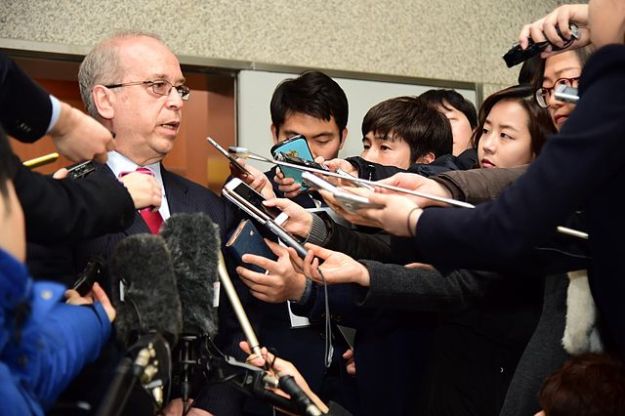Previously published at WGBHNews.org.
I have an idea for how to fix Boston.com, whose executives on Wednesday found themselves apologizing yet again — this time for some juvenile humor about House Speaker John Boehner’s alleged drinking problem following a death threat against him.
The screw-up has gotten widespread coverage from, among others, Politico, the Boston Herald (where the story landed on page one) and The Boston Globe.
First, some context on why John Henry and company find themselves in this situation.
When Boston Globe Media Partners decided to remove all Globe content from its free Boston.com site, a strategy that Justin Ellis explained at the Nieman Journalism Lab last April, they created a difficult challenge. Boston.com was one of the first and most successful newspaper websites, and had spent most of its existence primarily as a place where you could read the Globe for free. The challenge was to create a compelling news site without running anything from the Globe — and, at least based on what I’ve seen, to do it on the cheap.
The route that Boston.com has taken is a lot of aggregation, a lot of attitude and a lot of viral content — such as the phenomenon it had on its hands in December with Harvard Business School professor (and lawyer) Ben Edelman, who was revealed to have sent a series of legalistic, threatening emails to a Chinese restaurant owner because he’d been overcharged by $4 when he placed an online order.
The story went sour after the site published and then pulled a post falsely claiming that Edelman had sent a racist email. It then turned out that deputy editor Hilary Sargent, the lead reporter on all things Edelman, was selling T-shirts online making fun of him, which led to her suspension. (My former Boston Phoenix colleague David Bernstein, a WGBH News contributor, recently wrote a good summing-up of the Edelman affair, with links, for Boston magazine. We also talked about it on “Beat the Press.”)
It hasn’t helped that Boston.com has been without a top editor for most of its reincarnated existence. Globe Media chief executive Mike Sheehan told his own paper Wednesday that he hoped to have an editor in place soon, though he didn’t specify a timetable.
The deeper problem, though, is that Boston.com has a fundamentally different mission — maybe even an impossible mission — compared to the Globe’s other online verticals.
Both Crux, which covers the Catholic Church, and BetaBoston, which follows the local innovation economy, are free to excel and be the best that they can be. Stories that have broad appeal can be picked up and run in the Globe.
Boston.com, by contrast, is hampered by being a general news site that in some respects overlaps with the Globe but can’t really be allowed to compete in any serious way. There are exceptions, of course. For instance, the Globe — and news organizations around the world — picked up on the Edelman story, an entertaining morality tale about a hardworking restaurateur being harassed by an arrogant Harvard professor. And Globe editor Brian McGrory told Justin Ellis he expected to “compete like crazy” with Boston.com.
In the main, though, Boston.com has suffered by what we might think of as an imperfectly applied example of Clay Christensen’s disruption theory — by which I mean that the free Boston.com site can’t be allowed to disrupt the Globe’s business model, which is based on paid print and digital subscriptions as well as advertising. (Henry is known to be an aficionado of Christensen’s work. I wrote in some depth about disruption theory and journalism last summer for Medium.)
I disagree with critics who say Henry ought to shut down Boston.com (it still has great value, built up over nearly 20 years) or sell it (and let the Herald or another competitor grab it?). So what do I think the solution might be?
How about a first-rate arts-and-entertainment site with a truly comprehensive, searchable database of listings? It would fill a real need, and it might attract high-quality local ads. And it would be more like Crux and BetaBoston than the current Boston.com in that it could function as a Globe vertical rather than as a separate-but-not-quite-separate-enough enterprise.
I don’t know whether such an idea would work, and I would observe that the Phoenix didn’t have a lot of success with that model during the last few years of its existence. But the Henry ownership is supposed to be all about experimentation. And the Globe has two advantages the Phoenix lacked: great technology and a huge built-in audience. Some experiments will pan out; some won’t. This one strikes me as worth trying.
Boston.com 2.0 has been troubled from the start. Maybe the right editor can fix it. But maybe it’s not too soon to be thinking about version 3.0.





